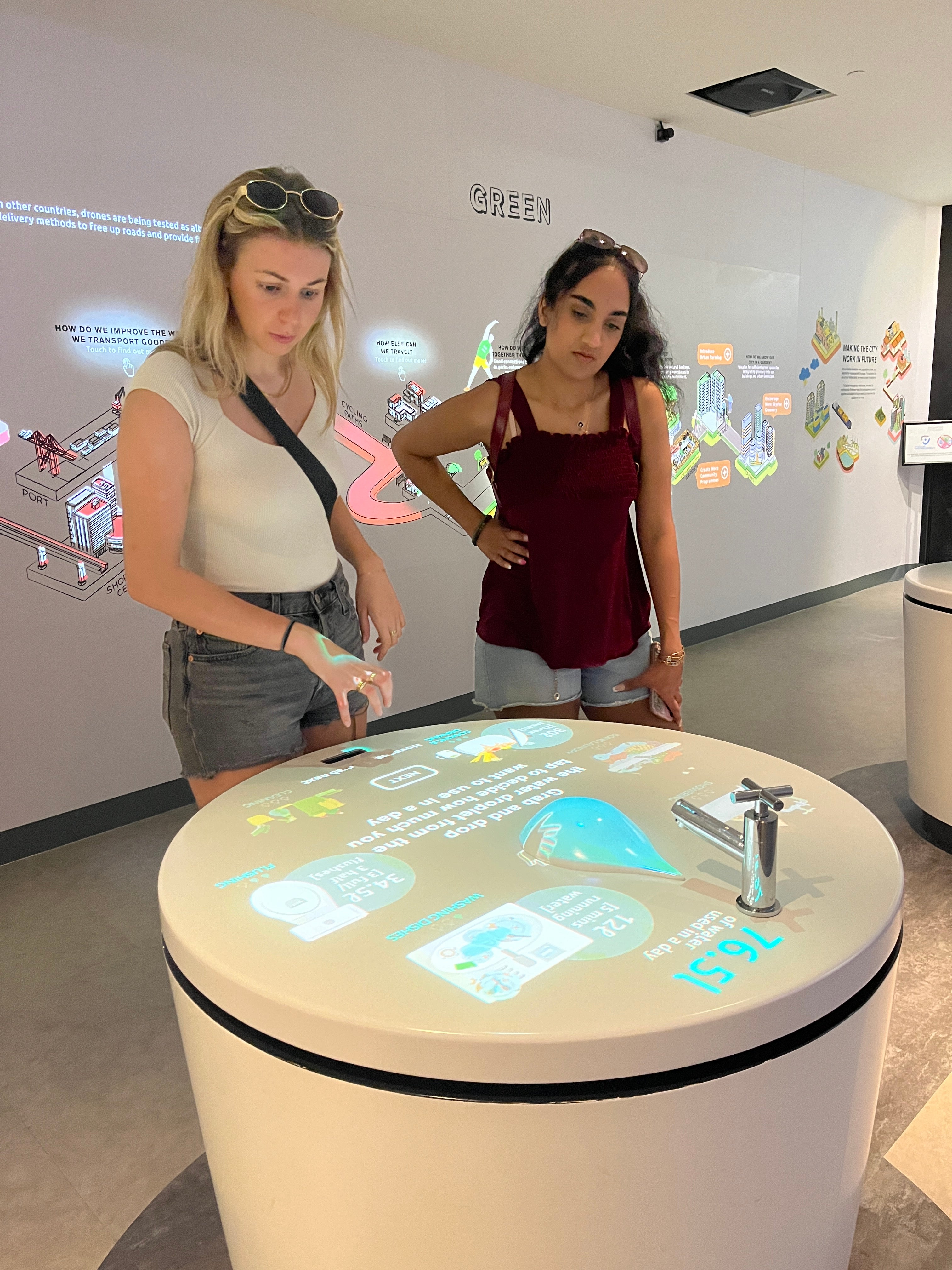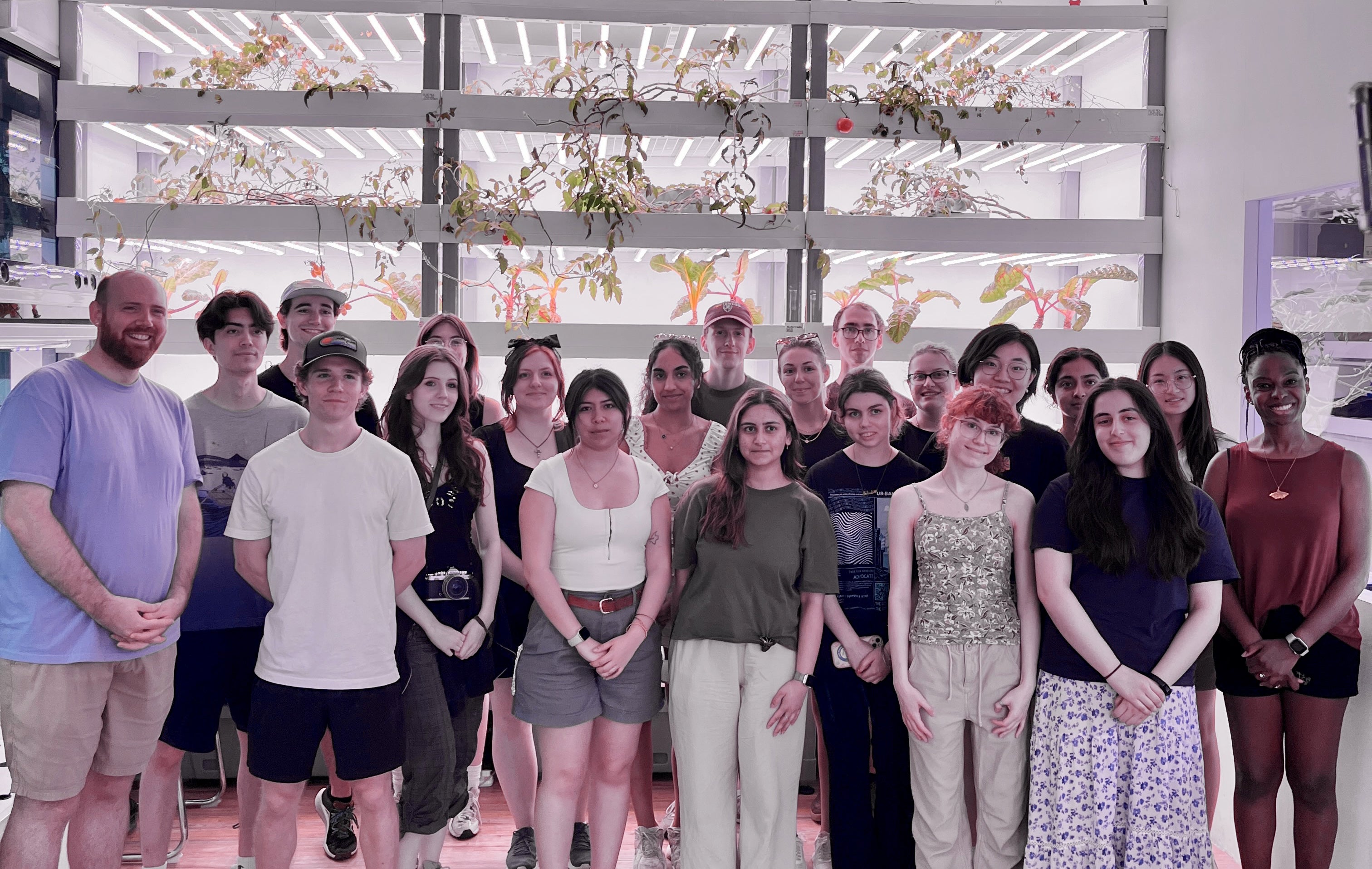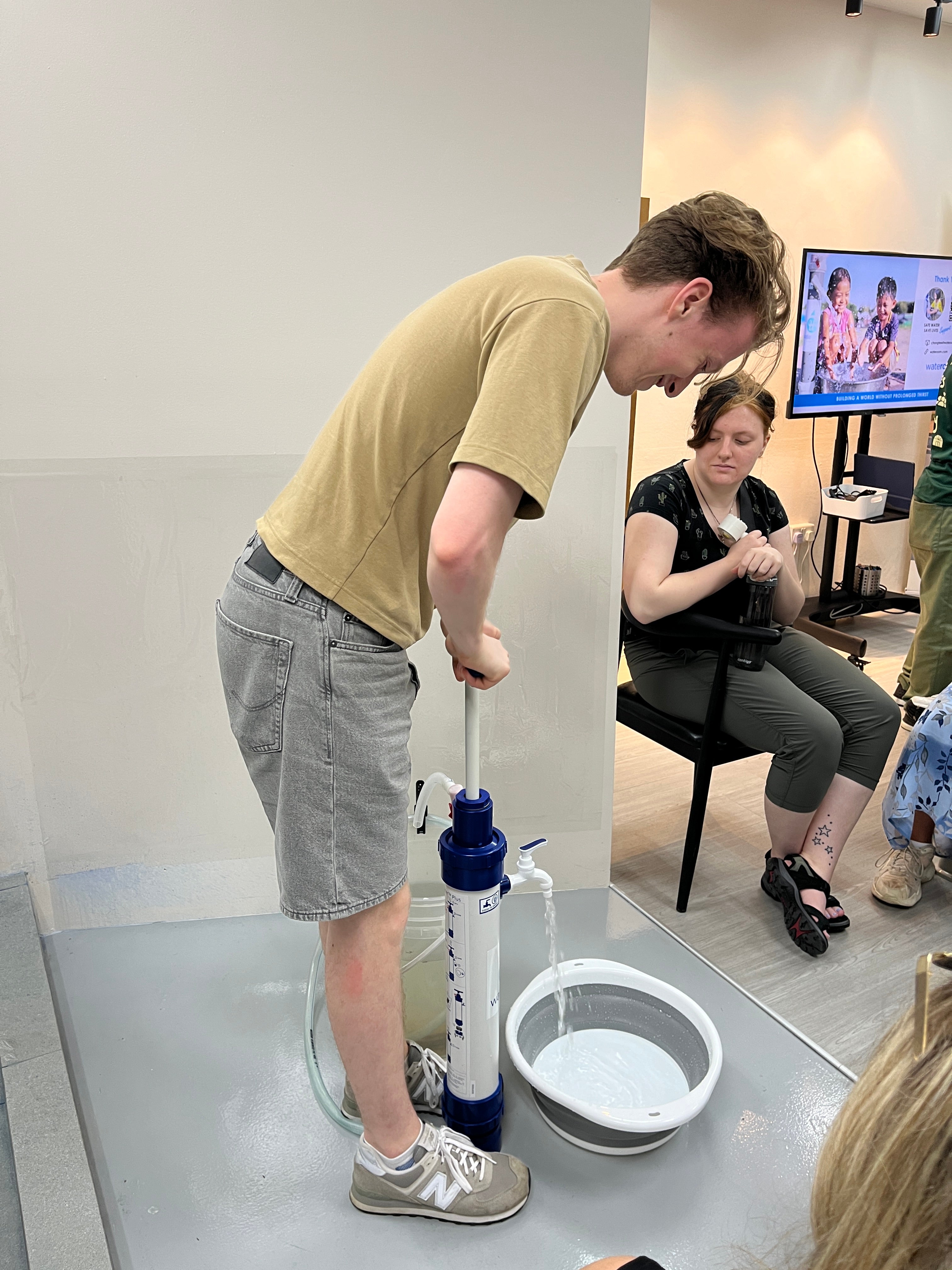Smart cities, Smart water: A global learning experience in Singapore

This spring, Water Institute member Dr. Leah Jones-Crank, Assistant Professor in the School of Environment, Resources and Sustainability, co-led a new international field course on urban sustainability in Singapore. Open to students in the Faculty of Environment, the course highlighted water management through immersive, real-world learning experiences.
Designed to explore urban sustainability in depth, the course gave students the chance to engage directly with local experts and researchers and to explore cutting-edge infrastructure. It also helped them develop critical thinking and cross-cultural understanding in the face of increasingly global environmental challenges.
With a population of six million and limited natural water sources, Singapore has become a global leader in water innovation and reuse. “Students learned that, due to Singapore’s small land area and high population density—only 735 km² for 6 million people—the country has had to be more innovative in how it thinks about water use,” said Jones-Crank. “With no natural groundwater and limited natural catchment areas, this has led them to diversify their water collection sources to develop the Four National Taps: imported water from Malaysia, desalinated water, water stored in man-made catchments, and water reuse.”
Through site visits, students explored how this integrated approach ensures a reliable water supply. They also saw firsthand the role of advanced water reuse technologies, the importance of desalination, and the multifunctionality of dams used for storage, flood prevention, and urban catchment management.
A highlight of the course was the visit to the Sustainable Singapore Gallery at Marina Barrage, where students examined the country’s unique water management systems.
“Students were especially engaged by the scale model of the dam, which simulates rainstorms and demonstrates how the dam responds to prevent city flooding on one side while also blocking seawater intrusion into the reservoir on the other,” said Jones-Crank.
The demonstration offered a clear example of how infrastructure can be both functional and educational. It showcases real-time water management while also building public awareness and support for long-term strategies.

Photo: Students explore an interactive water exhibit at the Singapore City Gallery.
The course also linked water to broader themes of urban sustainability. Students toured an indoor vertical farm that uses reclaimed water to grow leafy greens and learned about the design of integrated water-energy-food systems that support resilience in dense urban spaces. At Singapore Management University, they explored mobile weather stations used to track urban heat and learned how water availability intersects with climate adaptation.
These hands-on experiences help students explore practical solutions to urban challenges such as green space conservation, food security and extreme heat, key themes throughout the course.

Photo: Group photo of the instructors (Dr. Peter Crank and Dr. Leah Jones-Crank) and the students on our field course at an indoor vertical farm where we learned about hydroponic systems.
Throughout the course, students were encouraged to compare Singapore’s approach to water management with that of Canada.
“Students recognized that Singapore’s constrained geography and lack of freshwater sources has driven a culture of innovation,” said Jones-Crank. “In contrast, Canada’s abundance of water can sometimes reduce the urgency around conservation and reuse.”
One detail that stood out to the students was Water Wally, Singapore’s cartoon water conservation mascot, visible on public signage and in long-running educational campaigns. For students, it illustrated the power of sustained, creative public engagement in shaping water-conscious behaviours.
The course also contributed to Dr. Jones-Crank’s research on community-based water-food-energy governance systems. It allowed her to revisit infrastructure she studied three years earlier and reflect with students on how local policies and technologies have evolved.
By embedding international, experiential learning into the curriculum, the course equips students with the tools to think critically, work collaboratively, and apply systems thinking to some of the world’s most complex water challenges. With exposure to innovative solutions from a different context, students returned with fresh perspectives and a deeper understanding of what it takes to drive sustainable change.
Learn more about the course ENVS 476A Urban Sustainability: Life as a City in a Garden here.

Photo: We met with a water start-up company, WaterRoam, and students got to test out their manual water purification system.